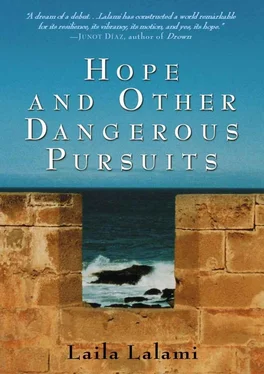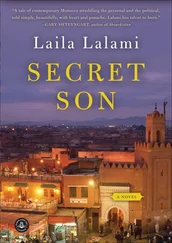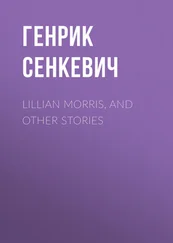When Betoul finally came home, she stood for a moment, with her hand still on the door knob, and exhaled loudly.
“How was your day?” Faten asked.
“I’m exhausted.”
“Is Ana still sick?”
“No, she’s better,” Betoul said. “But her mother spent all day in bed, crying. She didn’t go to work. She said she’s too fat and her husband doesn’t want her anymore. So after I took the children to school and put Ana down for her nap, I made her lunch and then let out the waist on a couple of her pants, so they’d fit better.”
“Well, you should rest now. I made dinner,” Faten said.
“Aren’t you working tonight?”
“Not tonight,” Faten said. “It’s Eid.”
Betoul looked as though she wanted to sleep rather than eat, but she said thanks, went to wash up, then sat at the table. Faten served her a generous portion of the lamb. Betoul had a taste. “A bit salty, dear,” she said.
Faten smiled, feeling grateful for the truth.
FOR FIVE YEARS Aziz had imagined the scene of his homecoming. In his carefully rehearsed fantasies, he would come home on a sunny day, dressed in a crisp white shirt and black slacks, his hair gelled back and his mustache trimmed. His new car would be stacked to the roof with gifts for everyone in the family. When he rang the doorbell, his wife and his aging parents would greet him with smiles on their faces. He would take his wife into his arms, lift her, and they would twirl, like in the movies. Within days of his arrival, he would move them from the decrepit apartment in a poor neighborhood of Casablanca to one of those modern buildings that sprang up daily in the city.
But as the date of his return to Morocco approached, Aziz found that he had to alter the details of his daydreams. He had imagined he’d arrive in a late-model car, but now he thought that a car trip would be impractical, and besides, he didn’t think his beat-up Volkswagen could sustain the 800 kilometers from Madrid to Casablanca. So he had booked himself on a Royal Air Maroc flight instead. To make matters worse, the image of his family greeting him at the door of their apartment grew dimmer. His father had died during his absence, and now his mother and his wife lived alone. He also had trouble visualizing his wife’s face as easily as he had in the beginning. He remembered her to be slender and distinctly shorter than he, but he couldn’t quite recall the color of her eyes, whether they were green brown or gray brown.
These uncertainties made for a stressful few days, culminating on the day of his departure. He arrived at Barajas Airport three hours before his flight. He made sure again and again that his passport and work visa were in order so that he could reenter Spain after his trip. Once he got on the plane, he couldn’t eat the light meal they served during the hour-long flight. He filled out his customs declaration as soon as it was handed to him, repeatedly checking to see that he had entered the correct information from his passport.
When finally the plane flew over the port of Casablanca, he looked out the window and saw the beaches, the factories, the streets jammed with cars, the minaret of the King Hassan mosque, but he couldn’t locate the medina or the dome in the Arab League Park. He held on to the arms of his seat as the plane began its descent.
It was Aziz’s first time inside the Mohammed V Airport in Casablanca. He had left the country on an inflatable boat out of Tangier, in pitch dark, with two dozen other immigrants. He had been caught right on the beach in Arzila by the Spanish Guardia Civil and sent back to Morocco on the ferry two days later. He had spent a few months in Tangier, hustling, and tried again to cross, on a balmy summer night. This time the current had helped him, and he had landed on a quiet beach near Tarifa. A few days later he was in Catalonia, ready for the farm job he had been promised by one of the smugglers he’d paid. It was tough work, but at least it was work, and he tried to keep his mind focused on the paycheck at the end. What he remembered most about that first summer was the hunched figures of his fellow workers and the smell of muscle ointment inside the van that they took to work every morning. When the long-awaited paycheck turned out to be a pittance, he was too afraid to complain. He thought of going north and crossing into France but was afraid to tempt fate again. After all, he had already been luckier than most. The trip in the inflatable Zodiac had been an ordeal he wanted to forget, and he didn’t think sneaking across the border in the back of a vegetable truck would be any easier. So he traveled south instead. He arrived in Madrid in November, with only a vague address for a friend who worked in a restaurant and might be able to help him out.
THE CASABLANCA AIRPORT was impressive. The marble floors, the automatic doors, the duty-free shops — everything looked modern. But the line for passport check was long. After waiting an hour for his turn, Aziz stood at the window where the officer, a man whose purple lips attested to heavy smoking, cradled his chin, an unfriendly look on his face.
“Passeport,” he said.
Aziz slid the green booklet bearing the imprint of the pentacle under the glass window. The officer typed something on his keyboard, then leafed through Aziz’s passport.
“Where do you work?” the officer asked.
Aziz was taken aback. “In an office,” he said. That was a lie. But he didn’t understand what his job had to do with checking his passport. He feared that telling the truth, that he was a bus boy, would make the officer look down on him.
“Do you have your national ID card?”
“No.” Aziz stiffened. He stood with his back straight, trying to control the surge of anxiety that was overtaking him. He didn’t want to appear nervous. The officer sighed audibly and started typing away again at his computer. He stamped the passport and threw it across the counter. “Next time, have your ID with you.”
Aziz walked to the luggage area and collected his bags. The customs officer asked him to open his suitcase, prodding the contents with his baton. He saw a pack of ten undershirts, still in their plastic wrapping. “Are you planning on reselling any of these?” he asked.
Aziz knew the type. They harassed immigrants in the hope that they would get a bill slipped to them. He didn’t want to play that game. His voice was cool and disaffected when he replied no. The officer looked behind Aziz at the line, then closed the suitcase and marked it with a check mark in white chalk. Aziz was free to go.
He rode the escalator down to the train station. The shuttle train had been nicknamed Aouita, after the Olympic gold medalist, because it was fast and always on time. Aziz smiled now at the thought of it, at how his countrymen were always quick to come up with funny names for everything. He took a seat on the train, which departed right on time. Outside, the road was littered with black plastic bags. Trees, their leaves dry and yellow, swayed in the wind. In the distance an old truck lay on its side, abandoned, its wheels in the air. Soon they entered the metro area, with its factories and apartment buildings.
He got off the train at Casablanca-Port, the stop nearest to his old neighborhood. As he stepped into the lobby of the station, he found himself in the middle of a crowd of boys selling cigarettes, men offering to polish shoes, beggars asking for change. He held his suitcase and handbag firmly. His throat was dry. He started walking in earnest — the apartment was a short distance from the station and there was no need to take a cab. The cart that sold boiled chickpeas in paper cones was still there up the street, and the same old man in a blue lab coat and wool hat still worked at the newspaper stand. A group of teenage girls on their way to school crossed the street in Aziz’s direction. Several of them had scarves on their heads, and despite himself Aziz stared at them until they had passed him.
Читать дальше












